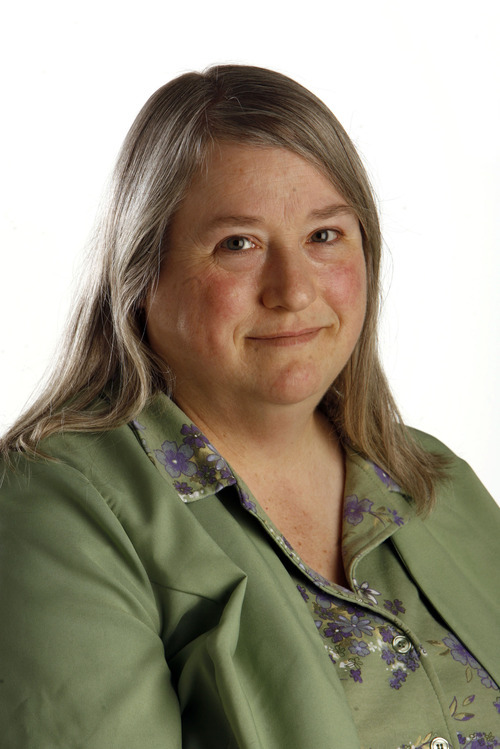This is an archived article that was published on sltrib.com in 2012, and information in the article may be outdated. It is provided only for personal research purposes and may not be reprinted.
Immigrants have come from nearly every part of the world to become Utahns. One of my favorite early Utahns was Henri Edouard ("Ned") Desaules, a French-speaking man from Switzerland.
Ned arrived in Utah in 1856. Between that date and his death in 1904, he lived in Provo, Santaquin, Prattville and Kingston. His English was good enough to use for his diary, but deepening deafness prevented him from easy social conversation with his neighbors. He often felt isolated, and lonely is a word that appears frequently in his writing.
Ned was an avid gardener, investing a considerable amount in flowers. Early in 1874 he described his Santaquin garden: tulips, anemone and iris among the carrots and cabbages. His crocuses were not the prettiest flowers, he wrote, "but considering that they bloom so early they are worth their price."
His neighbors frowned on the extravagance, or at least he thought they did. Defending himself, Ned declared, "I do not think that the cultivation of flowers is a useless thing, because if Zion is going to blossom as the rose, there must needs be flowers."
His garden was not always a success, though. Ned, who once wrote that "I am afraid of myself because I have too angry a temper," recorded furiously in 1888 that all but one of his roses had died. From a $6 investment in flowers, "$4.50 is gone to Hell & only $1.50 still standing. I wish I had spent the money in novels. Damn & Curse it."
Ned cared for animals as much as for flowers, and criticized what he saw as the cruel habits of neighbors. They sent their cattle to the hills to fend for themselves over the winter. The cattle, and especially the calves, he complained to a newspaper editor, "are a pity to look at in the early spring. They mostly look like walking skeletons, having nothing but the skin and bones, and great staring eyes that tell of the suffering they have passed through."
Ned kept his own cows at home, feeding them carrots and beets.
He built a chicken coop in 1888, one with a shingle roof and a window. His neighbors thought the window glass was a ridiculous waste of money.
"I don't care," wrote Ned. "I believe in chickens having a comfortable, lighted & clean room to live in."
His neighbors' child-raising habits also fell short in Ned's eyes. The town of Kingston held a farewell dance in honor of a young man leaving for work in Colorado.
"Poor fellow," wrote Ned, "he don't know enough to stay at home with his parents. But again some fathers have not the knack to make home lovable to his children and they leave off to try to find better elsewhere."
For these and other criticisms he shared so freely, Ned was convinced that his neighbors considered him "a queer old crank." He thought he frightened the little boys who came to his carpenter shop for wood scraps — but frightened little boys would not have gone back to him time after time, as they did.
Neither would frightened little girls have brought him eggs to trade for writing paper. Nor would young ladies have flirted outrageously with the old bachelor (he never married), as recorded in Ned's diary.
The reminiscences of those who had been children in Kingston during Ned's residence there recall him with fondness and a little awe — Ned was the man who could build anything, who bought them candy, who had a telescope and who always had illustrated newspapers to loan.
In the obscure writings of Ned Desaules, I see a man who loved beauty, who cared for the welfare of animals and encouraged the education of youth. You've probably never heard of him before today, but he was a Utahn, and he played a role in building the world we have inherited.
Ardis E. Parshall is a Utah historian who welcomes feedback from readers. She can be reached at AEParshall@aol.com.



